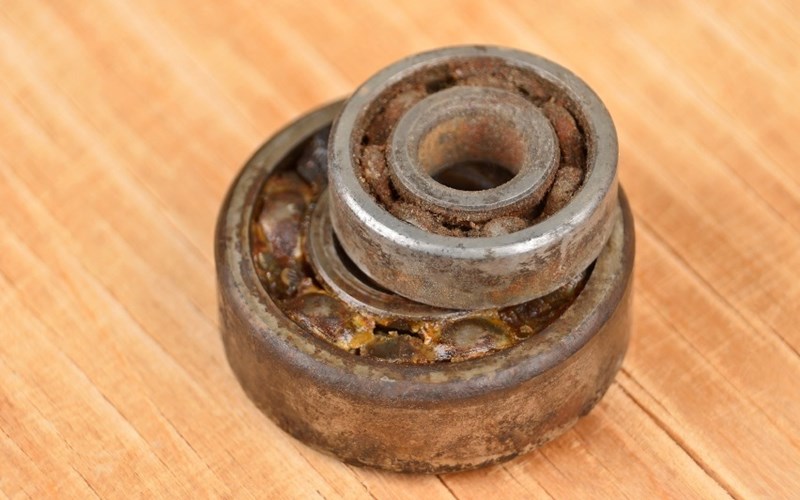Although stainless and chrome steel bearings are made to be corrosion-resistant, they aren’t immune to rusting. Improper storage and handling, high humidity, condensation, and more can significantly reduce the life of your bearings. In many cases, you won’t discover the problem until the damage has been done.
HOW DOES CORROSION AFFECT THE BEARINGS?
If the bearing is exposed to the presence of water over a long period of time, it can cause deep-seated rust. Over time, flaking and cracks will form, causing premature bearing fatigue.
Alternatively, if the bearing fit is loose or improperly installed, fretting corrosion can occur. Over time, the rings may not be evenly supported, which has a negative impact on load distribution.
Bigger picture, corrosion reduces machine performance and productivity, and increases the cost of operation.
WHAT SHOULD I LOOK FOR?
Deep-seated rust will create grey-ish black streaks across the raceways. In bearings with fretting corrosion, you will see areas of rust on the outside surface of the outer ring or in the bore of the inner ring.
WHAT CAN I DO ABOUT IT?
Prevention is the best medicine. Here are some ways you can keep bearing corrosion at bay.
- Use a water-resistant grease for your lubricant. This can actually act as a protective barrier in slightly damp environments.
- Apply protective coatings. Chromium and nickel plating, zinc thermal sprays, and black oxide are just a few examples of coatings that protect bearings from rust.
- Adjust the bearing seat if you suspect fretting corrosion.
- Try a different material. In extremely corrosive environments, you may want to use ceramic bearings.
When it comes bearings, surprises are never a good thing. Corrosion is sneaky. Avoid surprises by being proactive. Your bearings (and bottom line) will thank you.
Not sure how to get started? Need additional advice? Give us a call at 1-800-431-1980.
